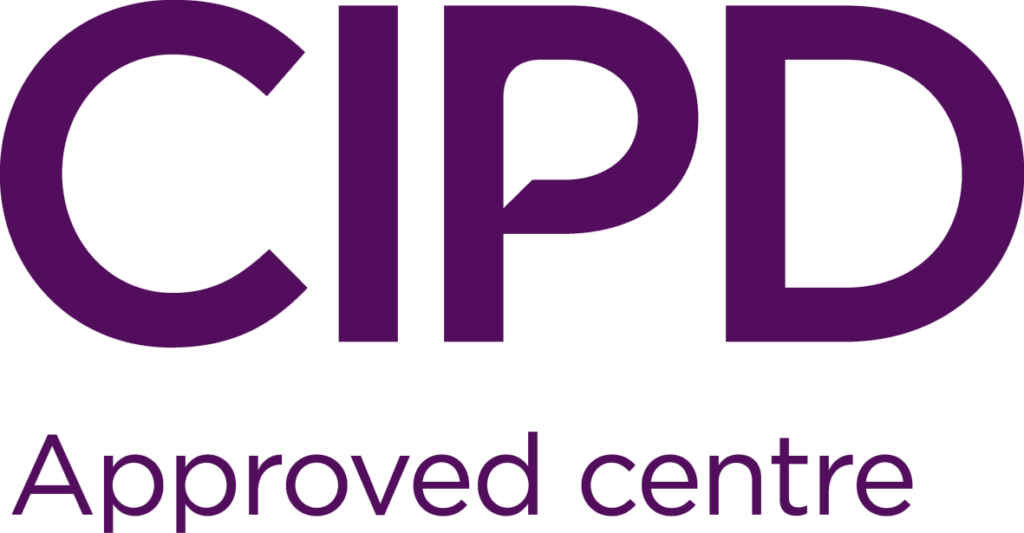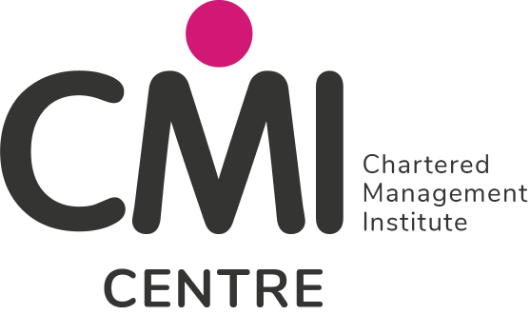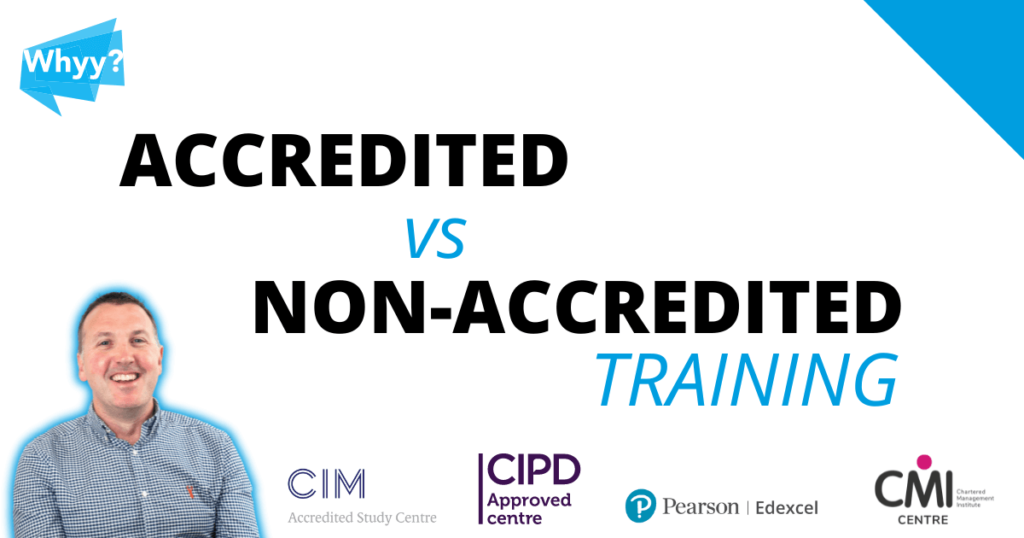When it comes to education and acquiring new skills, one of the key considerations is whether to opt for accredited or non-accredited training programs. Accredited training refers to courses and programs that have been officially recognised and approved by a recognised accrediting body, while non-accredited training refers to courses that do not have this official recognition.
In this article, we will explore the differences between accredited and non-accredited training, uncover the advantages and disadvantages and share how you can take control of your training in this ultimate guide to accredited and non-accredited training.
What is Accredited Training?
Accredited training refers to educational training programs and courses that have undergone a rigorous evaluation process by an accrediting body. These bodies assess various aspects such as curriculum quality, faculty qualifications, facilities, and student support services.
Upon successful evaluation, the training provider is granted accreditation as an approved or accredited training centre, signifying that the program meets certain standards of excellence and quality.
Who are accrediting bodies?
Accrediting bodies play a crucial role in ensuring that training providers maintain the highest standard of training, some of the accrediting bodies Whyy? Change are accredited by are;

The Chartered Institute of Personnel Development (CIPD) – Internationally recognised, CIPD are the only professional body in the world that can accredit, award professional Human Resources (HR) qualifications and present Chartered status to individual HR and L&D professionals.

The Chartered Management Institute (CMI) – The only Chartered professional body in the field of Management and Leadership, that represent a global benchmark for excellence, with over 143,000 members worldwide.
The Chartered Institute of Marketing (CIM) – The CIM is the world’s leading professional body for marketing, 28,000 members worldwide, of which there are over 2,500 Chartered Marketers.
Benefits of Accredited Training
Attract and Retain Talent
Offering accredited training and professional qualifications helps to attract top talent and professionals who are committed to professional development. Upskilling and investing in your employee’s development, makes them feel valued and supported increasing their loyalty to the business.
Quality Assurance
One of the primary advantages of accredited training is the assurance of quality education. Accrediting bodies ensure that the curriculum and instructional materials are up-to-date, relevant, and aligned with industry standards. This ensures that you receive the knowledge and skills necessary to excel in your chosen field.
Professional Recognition
Accredited training carries a certain level of professional recognition and credibility. Employers and organizations often prefer candidates who have completed accredited programs, as it demonstrates their commitment to quality education and industry standards.
Accreditation can enhance your employability and open doors to various career opportunities. Upon successful completion, learners will also receive a certificate of achievement to showcase the new skills and knowledge they’ve acquired.
Drawbacks of Accredited Training
Rigidity and Standardisation
One drawback of accredited training is the potential rigidity and standardisation of the curriculum. Accredited programs must adhere to specific guidelines, which may limit the flexibility to tailor the content according to individual preferences or specialised areas of interest.
Higher Costs
Accredited training programs often have a higher price tag than non-accredited options. This is due to the rigorous evaluation processes, maintenance of accreditation standards, and additional administrative expenses. It is essential to consider your budget and financial resources when weighing the costs and benefits of accredited training.
What is Non-Accredited Training?
Non-Accredited training refers to educational programs and courses that have not undergone formal evaluation and recognition by an accrediting body. These programs may still offer valuable knowledge and skills but lack official approval and endorsement.
Advantages of Non-Accredited Training
Flexibility and Customisation
Non-Accredited training programs often provide more flexibility and customization options. They can be tailored to meet specific needs, allowing you to focus on niche areas or unique skill sets that may not be covered extensively in accredited programs. This flexibility can be particularly beneficial for individuals seeking specialised training or pursuing entrepreneurial endeavours.
Affordability
Compared to accredited training, non-accredited programs are often more affordable. The absence of accreditation-related costs and administrative overheads allows training providers to offer courses at lower price points. This affordability can make non-accredited training more accessible to individuals with budget constraints or those seeking cost-effective learning opportunities.
Niche Specialisations
Non-accredited training programs have the advantage of exploring emerging or niche fields that may not yet have established accreditation processes. If you are interested in cutting-edge technologies or evolving industries, non-accredited training can provide early access to specialised knowledge and skill development.
Disadvantages of Non-Accredited Training
Lack of Recognition
One of the main drawbacks of non-accredited training is the lack of formal recognition. Some employers and institutions may not consider non-accredited training as equivalent to accredited programs, which can limit your career prospects and opportunities for further education.
Limited Career Opportunities
While non-accredited training can offer valuable knowledge and skills, certain industries or professions may have strict requirements for accreditation. If you are pursuing a career in a regulated field, such as healthcare or finance, accredited training may be necessary to meet licensing or certification requirements.
Which Option Is Right for You?
The choice between accredited and non-accredited training ultimately depends on your specific goals, preferences, and circumstances. Consider the following factors when making your decision:
- If you are seeking formal recognition, enhanced career prospects, and the potential for transferable credits, accredited training may be the better choice.
- If you have a limited budget, prefer customized learning experiences, or are interested in niche specialisms, non-accredited training can provide you with greater flexibility and affordability.
Remember to research and evaluate the reputation and quality of both accredited and non-accredited training providers before deciding. It is essential to ensure that the program you choose aligns with your long-term goals and meets your expectations.
Take control of your accredited training with Whyy? Change
Not investing in your training and professional development can have a significant impact on your staff retention, employee morale and business growth. Implementing an accredited training programme can help your business attract new employees, retain talent and gain recognition for investing in your staff development.
Whyy? Change offers a range of internationally recognised accredited training courses in; Leadership, Marketing, HR and L&D. Leadership training is accredited by the Chartered Management Institute (CMI), Marketing training is accredited by the Chartered Institute of Marketing and HR and L&D training is accredited by the Chartered Institute of Personnel Development.
Find the right course and the level of training to suit you, with Level 3 (A-Level equivalent), Level 4 (Foundation Degree equivalent), Level 5-6 (Degree equivalent) and even Level 7 (Master’s Degree equivalent) courses available.
Invest in your employee’s professional development with an accredited training course, upskill your team and take your business to new heights. Get in touch with the team at Whyy? Change for a friendly chat about your professional development.
Visit their website www.whyychange.com, email them on info@whyychange.com or give them a call on 0114 400 0077.
Who are Whyy? Change?
Whyy? Change is a leading training provider based in South Yorkshire that offers a range of apprenticeship solutions to help businesses upskill and develop their employees.
Whyy? Change offer accredited qualifications as a part of our apprenticeship standards, created by some of the world’s leading accreditation bodies including Lean & Six Sigma, Leadership (CMI), HR & Learning (CIPD), Marketing (CIM), Quality HSE (Bureau Veritas) and Functional Skills (Pearson Edexcel).



